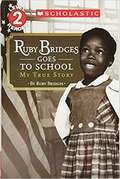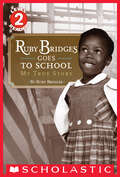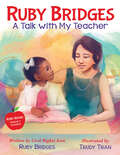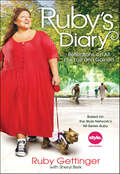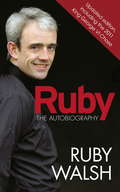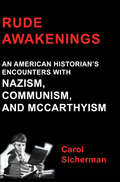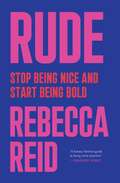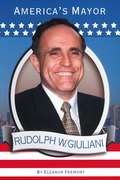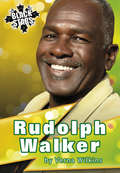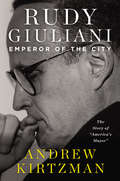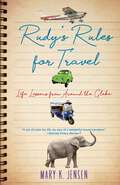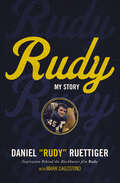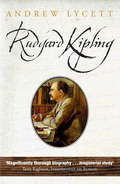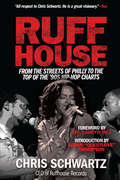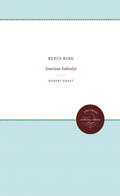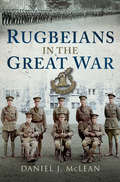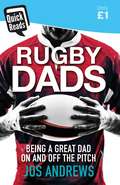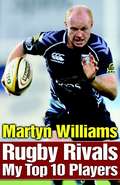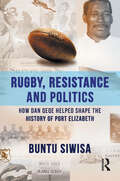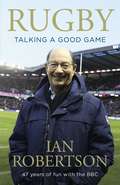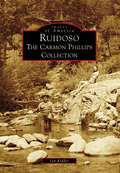- Table View
- List View
Rubber Balls and Liquor
by Gilbert GottfriedNobody ever reads this part of the book. Somebody at the publishing house explained to me that it's actually called the book flap. That sounded dirty, so I giggled for three hours. But it says in my contract that I have to write something over here in this tiny space, even though I don't think anyone will notice. Some people might open up to the middle of the book and start flipping through pages, but nobody will read this part. In fact, I'll bet anything that you're not reading this part now. And if it turns out that you are . . . well, the guy in the bookstore is probably staring at you, saying, "Stop reading that book!" I guess there's a reason bookstores are going out of business, left and right. Cheap fucks like you think it's okay to stand in the aisles and read to your heart's content. So for the sake of bookstores everywhere, buy this fucking book. I myself don't care. I only care about the poor working man. Oh, and the sanctity of the written word. I care about that, too. And in my case, those written words, of course, include fuck, dick, and pussy. In the early 1970s, as our nation's youth railed against every conceivable societal norm, a funny-looking teenage Jew started turning up at open mike nights in various New York City comedy clubs. Surprisingly, he didn't suck. That funny-looking teenage Jew is now the even funnier-looking middle-aged comedian Gilbert Gottfried, who despite his transparent shortcomings has managed to carve out a hardly-respectable career—and a reputation for shock and awe unrivaled outside the Bush administration. With this scathingly funny book of rants and musings, Gottfried sullies an entirely new medium with his dysfunctional worldview.HILARIOUS HIGHLIGHTS INCLUDE:• Gut-wrenching stories from his bizarre childhood• A list of celebrities Gilbert would like to have sex with• A somewhat shorter list of celebrities who would like to have sex with Gilbert• An even shorter list of Gilbert's comely co-stars who have been forced to have sex with him on- screen• Side-splitting tales of the worst gigs he's ever performed• Incredibly awkward encounters with famous people from Gilbert's years as a celebrity (of sorts), including Harrison Ford, Keifer Sutherland, Hugh Hefner and one wildly offensive exchange with Marlee Matlin that left the actress speechless• Signature takes on timeless jokes, presented in a clip‘n save format so humorless readers can commit them to memory or tear them from the book's spine and carry them around in their wallets to amuse their friends• The story behind Gilbert's infamous retelling of the classic "Aristocrats" routine that defined the most recent phase of his career• And much more!
Ruby Bridges Goes to School: My True Story (Scholastic Reader Level 2 Ser.)
by Ruby BridgesNIMAC-sourced textbook
Ruby Bridges Goes to School: My True Story (Scholastic Reader, Level 2)
by Ruby BridgesThe extraordinary true story of Ruby Bridges, the first Black child to integrate a New Orleans school -- now with simple text for young readers!In 1960, six-year-old Ruby Bridges walked through an angry crowd and into a school, changing history. This is the true story of an extraordinary little girl who became the first Black person to attend an all-white elementary school in New Orleans.With simple text and historical photographs, this easy reader explores an amazing moment in history and celebrates the courage of a young girl who stayed strong in the face of racism.
Ruby Bridges: A Talk with My Teacher
by Ruby BridgesAcclaimed civil rights icon, Ruby Bridges, shares the touching tale of reuniting with the first-grade teacher who changed her life, Mrs. Henry. Once again, you have shown me that you never get too old to learn. Teaching really is the noblest of professions.When Ruby Bridges was only six years old, she made history by being the first Black child to integrate William Frantz Elementary School. She became best friends with her teacher, Mrs. Henry. Excited to come back for her second year, Ruby is soon devastated to learn that Mrs. Henry isn't her second-grade teacher. Where did Mrs. Henry go? Can Ruby ever reconnect with her favorite teacher?A love letter to teachers who hold the power to change lives, Ruby Bridges: A Talk with My Teacher illuminates the lasting impact that the best of teachers can have on the lives of their students. Trudy Tran's emotive rendering of Ruby Bridges from childhood to adulthood brings new life to this heartwarming story of a reunion between two long lost best friends.
Ruby's Diary: Reflections on All I've Lost and Gained
by Sheryl Berk Ruby GettingerRuby Gettinger, the endearing and beloved star of The Style Network's hit reality show Ruby, reveals the most private aspects of her life-altering journey to conquer morbid obesity and to attain health and happiness in this inspirational book based on her personal diaryFrom the debut of The Style Network's number one reality show Ruby, viewers fell in love with its sweet and spirited Southern star, and remain mesmerized by her public mission to overcome her inner conflicts and win her ongoing battle with weight.At her heaviest, Ruby weighed more than 700 pounds. Although she wasn't quite sure how she got to this point—or why—one thing was clear: it was killing her. Her doctor warned that her diabetes was raging out of control and that she could die at any moment. Vowing to change her life to save it, Ruby made a genuine commitment to uncover all of the underlying physical and psychological causes of her food addiction—an act of courage that has helped her lose nearly 400 pounds so far! To support her on this difficult path, Ruby has kept a journal of her experiences, including intimate reflections, surprising discoveries, and current fears, hopes, and dreams, many of which she shares here.Filled with honesty, optimism, and classic "Rubyisms" as well as revealing insights from her friends, family, and team of experts, Ruby's Diary is a remarkable record of one determined woman's complex challenges and her many laudable achievements. Ruby's perseverance is not only an example to all those battling their own weight and addiction issues, it is an example to all those grappling with personal obstacles of any kind. Anyone not in love with Ruby just hasn't met her yet!
Ruby: The Autobiography
by Ruby WalshAutobiography of champion jockey and much-loved sports personality Ruby Walsh.A much-loved sports personality throughout Ireland and Great Britain, Ruby has had a career of outstanding success, which includes having won all four of the home Grand Nationals. This new edition brings his story right up-to-date to include all of the races over the busy Christmas period as well as last year's astonishing triumph against the odds. With many doubting that he could be race-fit following a broken leg in November 2010, Ruby competed at Cheltenham Festival in March 2011 and won five races, finishing as the leading jockey.Ruby also talks openly about the three key working relationships in his life - with Paul Nicholls, Willie Mullins and his father, the legendary Ted Walsh - as well as laying bare the relationship that exists between him and jockey Tony McCoy - both great friends and professional rivals. With his intimate knowledge of the two greatest horses of our time, he also provides valuable insight into what it is like to ride Kauto Star and Denman. Ruby charts the rise of an immensely talented and unstoppable force in the world of sport.
Ruby: The Autobiography
by Ruby WalshAutobiography of champion jockey and much-loved sports personality Ruby Walsh.A much-loved sports personality throughout Ireland and Great Britain, Ruby has had a career of outstanding success, which includes having won all four of the home Grand Nationals. This new edition brings his story right up-to-date to include all of the races over the busy Christmas period as well as last year's astonishing triumph against the odds. With many doubting that he could be race-fit following a broken leg in November 2010, Ruby competed at Cheltenham Festival in March 2011 and won five races, finishing as the leading jockey.Ruby also talks openly about the three key working relationships in his life - with Paul Nicholls, Willie Mullins and his father, the legendary Ted Walsh - as well as laying bare the relationship that exists between him and jockey Tony McCoy - both great friends and professional rivals. With his intimate knowledge of the two greatest horses of our time, he also provides valuable insight into what it is like to ride Kauto Star and Denman. Ruby charts the rise of an immensely talented and unstoppable force in the world of sport.
Rude Awakenings: An American Historian's Encounter with Nazism, Communism, and McCarthyism
by Carol SichermanThe story of a man navigating an era of upheaval, persecution, and suspicion: “A must read for students of 20th-century political and intellectual history.” —Robert Cohen, Professor of History and Social Studies Education, New York UniversityDrawing on family papers, wide-ranging interviews, FBI files, American and German newspapers, a wide array of published sources, and her own memories, Carol Sicherman traces Harry Marks’s German American heritage, his education both formal and informal, his marriage to a fellow Communist from a poor Russian family, his rocky start as an academic, his anguish when confronted by his Communist past, and his ultimate creation of a satisfying career. Her sleuthing encompasses as well the paths to safety taken by his German friends as they found sanctuary around the world—in Russia, England, France, the Netherlands, Switzerland, Turkey, Palestine, Brazil, the United States, and Canada.“Of particular interest is Carol Sicherman's carefully researched description of the anti-Semitic atmosphere that Jewish students encountered at Harvard in the twenties and thirties, as well as the experience of a young American thrown into the turmoil accompanying the collapse of Germany's democracy and the appeal of Communism as an alternative to Nazism.” —Curt F. Beck, Professor Emeritus of Political Science, University of Connecticut
Rude: Stop Being Nice and Start Being Bold
by Rebecca ReidA timely, intelligent, and entertaining exploration of why ambitious women are often perceived as rude and how the power of rudeness can be harnessed in relationships, in bed, at work, and in everyday life—from journalist Rebecca Reid.During a TV interview with a comedian, Rebecca Reid found herself unable to get a word in edgewise. So, when she put her finger to her lips and shushed him, she became instantly known on the internet as &“Rebecca Rude.&” It was only then that she realized that being rude could actually be her superpower. A captivating blend of advice and pop culture, Rude will show you how to utilize the power of boldness in every area of your life. Exploring famous women who have been perceived as rude—including Princess Margaret, Anna Wintour, Taylor Swift, Meghan Markle, and others—this book demonstrates how those women used their &“rudeness&” to get what they want—and deserve—out of life. Reid also addresses whether there are different rules of rudeness for women compared to men (yes, there are) and how being taught not to be rude actually prevents women from being successful—especially because when women are assertive, they are often judged as being aggressive. And while there&’s a place for politeness, Rebecca argues that it&’s never a bad time to stand up for yourself to achieve your dreams.
Rudolph W. Giuliani: America's Mayor
by Eleanor FremontONCE A MAYOR -- NOW A HERO. On September 11, 2001, our nation watched in horror as the United States came under siege. In the aftermath, New York City mayor Rudolph W. Giuliani rose to the forefront as a strong and compassionate leader -- offering candid information, comforting those in pain, and proving himself a man of tremendous dedication to those in his charge. This revealing biography illustrates how his life's work prepared him for this incredible challenge. From his childhood in Brooklyn to his controversial work with the Department of Justice to his eight years as the mayor of one of the most complex cities in the world, Rudolph W. Giuliani -- Time magazine's Person of the Year -- has become one of the most fascinating and exceptional leaders of our time.
Rudolph Walker Biography (Black Star Series #3)
by Verna Allette WilkinsThe life story of Rudolph Walker, an actor whose career on stage and television in the UK spans 42 years. Includes photographs, illustrations and exclusive interviews. Rudolph was born in Trinidad in the Caribbean. When he was only 20 years old he left the island for London, to embark on a career in theatre. He is best known for his role as Patrick in EastEnders but worked on many popular TV series including Love Thy Neighbour, The Thin Blue Line, Black Silk and The Crouches. He has appeared on stage at the Old Vic, the Young Vic, the Tricycle, the Royal Court and the Theatre Royal among others.
Rudy Giuliani: Emperor of the City
by Andrew KirtzmanThe fascinating account of Rudy Giuliani’s rise to become Mayor of New York City and his eventful years as “emperor of the city”From longtime New York political journalist Andrew Kirtzman, the definitive biography of “America’s Mayor,” Rudy Giuliani, now a member of President Donald Trump’s legal team. The book begins with Giuliani's resignation as U.S. Attorney in 1989, and covers the time period through the immediate aftermath of September 11th. Deeply researched—relying upon numerous interviews with advisors, aides, and adversaries—Rudy Giuliani presents the ultimate look at the man who transformed New York City. Filled with surprising revelations about the Giuliani years, and insights into the man's character, this is political biography at its finest.
Rudy's Rules for Travel: Life Lessons from Around the Globe
by Mary K. JensenMost honeymoons, Mary knows, do not start this way. Lying outside on the sloping attic roof in Edinburgh, listening to the soft snores of her groom, she realizes that Rudy&’s number one rule, &“adapt," once again reigns. Rudy&’s Rules for Travel takes you across the twentieth-century globe with intrepid, frugal Rudy and his spouse Mary, a catastrophic thinker seeking comfort. Whether stalled in a Spanish car tunnel, stranded atop a runaway elephant, or held at rifle-point at a Soviet border, Rudy has a rule for every occasion—for example, &“Relax, some kind stranger will appear.&” Mary, meanwhile, has her deep breathing and her own commandment: &“Expect the worst.&” The two are a picture of contrast. As Mary was being born, Rudy was a new American citizen flying US Air Force missions over his homeland, Germany. His father was a seaman, hers an accountant. And when this marriage of opposites goes traveling, their stories combine laugh-out-loud humor with poignant lessons from the odyssey of a World War II veteran. So start packing—you&’ll want to join these two.
Rudy: My Story
by Mark Dagostino Daniel "Rudy" RuettigerRudy became the inspiration for millions when a Hollywood film depicting his journey as a Notre Dame football player became one of the most influential sports movies ever made. In Daniel "Rudy" Ruettiger's only autobiography, go behind the scenes to experience the heartache, triumph, and glory through Rudy's own eyes, and learn details of the ten years it took to get the movie made.For the first time, the real Rudy shares his story of floundering through school with undiagnosed dyslexia and finding himself mixed up with a rough and rowdy crowd. "Football was my salvation in high school," Rudy believes, and while he dreamed of playing for Notre Dame, he never believed he was smart enough to make it to the elite group of higher education.A poignant and high-energy storyteller, Rudy details failures and pitfalls along the way. He explains the persistence and determination it took to get accepted to Notre Dame, to suit up and play for twenty-seven glorious seconds, and to see the dream of his movie become a reality. Rudy is truly a real-life testament to the old adage that it is not how many times you get knocked down, but how many times you get up again. He will motivate you to discover your own dreams and to them with unrelenting faith that anything is possible.
Rudyard Kipling
by Andrew LycettParagon of English virtues or racist imperialist? Andrew Lycett (acclaimed biographer of Ian Fleming) has returned to primary sources to tell the intricate story of a misunderstood genius who became Britain's most famous and highest earning author. Among the many new sources, Lycett has discovered previously unpublished letters that illuminate Kipling's crucial years in India, his first girlfriend (the model for Mrs Hauksbee of Plain Tales from the Hills), his parents' decision to send him back to England to boarding school; and in his adult life his use of opium, his frustrating times in London and the brief peace he found in America before the devastating loss of both his young daughter and, in the First World War, his son. Lycett also uncovers the extraordinary story of Kipling's great love for Flo Garrard, daughter of the crown jeweller, and unravels the complicated yet enthralling saga of the American family the Balestiers, and of Carrie Balestier who became Kipling's wife. This biography is full of new material on Kipling's financial dealings with Lord Beaverbrook, his friendships with T.E. Lawrence, the painter Edward Burne-Jones and the Prime Minister Stanley Baldwin (who was his cousin).
Rudyard Kipling
by Andrew LycettParagon of English virtues or racist imperialist? Andrew Lycett (acclaimed biographer of Ian Fleming) has returned to primary sources to tell the intricate story of a misunderstood genius who became Britain's most famous and highest earning author. Among the many new sources, Lycett has discovered previously unpublished letters that illuminate Kipling's crucial years in India, his first girlfriend (the model for Mrs Hauksbee of Plain Tales from the Hills), his parents' decision to send him back to England to boarding school; and in his adult life his use of opium, his frustrating times in London and the brief peace he found in America before the devastating loss of both his young daughter and, in the First World War, his son. Lycett also uncovers the extraordinary story of Kipling's great love for Flo Garrard, daughter of the crown jeweller, and unravels the complicated yet enthralling saga of the American family the Balestiers, and of Carrie Balestier who became Kipling's wife. This biography is full of new material on Kipling's financial dealings with Lord Beaverbrook, his friendships with T.E. Lawrence, the painter Edward Burne-Jones and the Prime Minister Stanley Baldwin (who was his cousin).
Ruffhouse: From the Streets of Philly to the Top of the '90s Hip-Hop Charts
by Chris SchwartzThe Ruffhouse Records founder tells how he overcame poverty, abuse, and addiction to start a label that launched some of music's biggest stars: &“Gripping.&”—Philadelphia Magazine As a struggling musician trying to catch a break in 1980s Philadelphia, Chris Schwartz navigated the crime-infested, morally bankrupt music industry to found and build one of the most successful hip-hop record labels in the world. That label was Ruffhouse, which launched the careers of Nas, The Fugees, Cypress Hill, and others, dominating the charts and generating global revenues of over a billion dollars. Schwartz and his partner, Joe Nicolo, built Ruffhouse from one desk and a phone to one of hip-hop's most revered record companies while simultaneously struggling with drug addiction and alcoholism. A story of money, greed, envy, betrayal, violence, addiction, loss, and redemption, not to mention a whole lot of music, Ruffhouse reveals the inside story of the record companies, recording studios, tour buses, private jets, mansions, radio stations, and concert halls at the height of hip-hop's 1990s heyday while also uncovering the darker side of the business, from police stations to rehab clinics, courtrooms to prisons. Told in Schwartz's own candid, searing prose, Ruffhouse is a portrayal of hip-hop culture at its tipping point, as it transitioned from urban curiosity to global phenomenon. &“[A] story of adversity and perseverance…Fans of these artists will love the insider information on the recording process and the trials and tribulations of getting this music out into the world.&”―Library Journal &“All respect to Chris Schwartz. He is a great visionary.&”—Nas
Rufus King: American Federalist (Published by the Omohundro Institute of Early American History and Culture and the University of North Carolina Press)
by Robert ErnstThis is the first full-length biography of Rufus King. It emphasizes politics and diplomacy but also presents a well-rounded appraisal of King's personality, outlook, and interests. Many little-known facets of King's life are illuminated, including his relationship to the Burr-Hamilton duel.Originally published in 1968.A UNC Press Enduring Edition -- UNC Press Enduring Editions use the latest in digital technology to make available again books from our distinguished backlist that were previously out of print. These editions are published unaltered from the original, and are presented in affordable paperback formats, bringing readers both historical and cultural value.
Rugbeians in the Great War
by Daniel J. McLeanThe courage and sacrifices during World War I of the students who attended the influential boarding school best known for the sport that bears its name.Few schools can claim to have had such a deep and diverse effect on British history as Rugby. Its influence on the sporting field is well-known, but this book examines the roles played by Rugbeians in many different spheres during the Great War. Politicians and academics, Olympians and artists all left their ordinary lives to fight for their country and it was their school which bound them together. Some such as Ernest Swinton, inventor of the tank, and Maurice Hankey, Cabinet Secretary, had direct influence on the shaping of the conflict, whereas others such as Duncan Mackinnon (Olympic gold medal-winning rower) and the Cawley brothers (both Members of Parliament) are remembered primarily for their pre-war achievements. Until now there has never been a volume which traces the extent of Rugby’s influence, but this book showcases the extraordinary range of individuals from the school who left their mark on the war and the world at large.“I would say that the author has gone to great concentration and written an excellent and very detailed book. There is no other thing to do but to recommend this book, a really excellent book.” —The UK Historian
Rugby Dads
by Jos AndrewsBeing a great dad - on and off the pitch Fatherhood is an underrated skill. Many fall into it almost by accident. But having done so, they become accidental role models for the next generation. When that father and role model is a dad who has made his name in rugby, how difficult is it for sons and daughters to follow in his boots and make their own mark? And how do rugby players themselves cope with the pressures of the game, and looking after their little ones? With personal, family stories from several generations of rugby players and their children, along with tips on how to deal with the stresses and strains of a competitive, strenuous job and family life, this is a rugby book with a difference.
Rugby Rivals: My Top 10 Players
by Martyn WilliamsIn his 15-year career as one of the most popular figures in Welsh rugby, Martyn Williams has played against some of the giants of the sport. Known as 'Nugget' to the fans, Martyn has captained his country on many occasions and was a key player in two Welsh Grand Slam-winning campaigns. In Rugby Rivals he picks his personal top ten players from all the world rugby stars he's ever played against. From Martin Johnson and Shane Williams to Jonah Lomu and Richie McCaw he gives an insight into what makes them tick and reveals what they are really like off the pitch. Rugby Rivals is a compelling read that will provoke debate among rugby fans and provide a great starting point to anyone interested in the game.
Rugby, Resistance and Politics: How Dan Qeqe Helped Shape the History of Port Elizabeth
by Buntu SiwisaBuntu Swisa has written a vivid biography of Dan Qeqe, the legendary sportsman, powerbroker and pioneer of black rugby and the liberation of sport. His book examines the complex and questionable relationships that Qeqe had with the enemies of non-racial sport, which cemented his power base. Siwisa tells the story of Qeqe’s life and times and at the same time has written a social and political biography of Port Elizabeth—a people’s history of Port Elizabeth. As much as Qeqe was a local legend, his achievements had national repercussions and, indeed, continue to this day. Print editions not for sale in Sub Saharan Africa.
Rugby: 47 Years of Fun with the BBC
by Ian RobertsonIan Robertson joined the BBC during the golden age of radio broadcasting and was given a crash course in the art of sports commentary from some of the greatest names ever to sit behind a microphone: Cliff Morgan and Peter Bromley, Bryon Butler and John Arlott. Almost half a century after being introduced to the rugby airwaves by his inspiring mentor Bill McLaren, the former Scotland fly-half looks back on the most eventful of careers, during which he covered nine British and Irish Lions tours and eight World Cups, including the 2003 tournament that saw England life the Webb Ellis Trophy and "Robbo" pick up awards for his spine-tingling description of Jonny Wilkinson's decisive drop goal.He reflects on his playing days, his role in guiding Cambridge University to a long spell of Varsity Match supremacy and his relationships with some of the union code's most celebrated figures, including Sir Clive Woodward and Jonah Lomu. He also writes vividly and hilariously of his experiences as a horse racing enthusiast, his meetings with some of the world's legendary golfers and his dealings with a stellar cast of sporting outsiders, from Richard Burton and Elizabeth Taylor to Nelson Mandela. It is a hugely entertaining story that begins in a bygone rugby age, yet has much to say about the game in the here and now.
Rugby: The Perfect Gift for Rugby Fans
by Ian RobertsonIan Robertson joined the BBC during the golden age of radio broadcasting and was given a crash course in the art of sports commentary from some of the greatest names ever to sit behind a microphone: Cliff Morgan and Peter Bromley, Bryon Butler and John Arlott. Almost half a century after being introduced to the rugby airwaves by his inspiring mentor Bill McLaren, the former Scotland fly-half looks back on the most eventful of careers, during which he covered nine British and Irish Lions tours and eight World Cups, including the 2003 tournament that saw England life the Webb Ellis Trophy and "Robbo" pick up awards for his spine-tingling description of Jonny Wilkinson's decisive drop goal.He reflects on his playing days, his role in guiding Cambridge University to a long spell of Varsity Match supremacy and his relationships with some of the union code's most celebrated figures, including Sir Clive Woodward and Jonah Lomu. He also writes vividly and hilariously of his experiences as a horse racing enthusiast, his meetings with some of the world's legendary golfers and his dealings with a stellar cast of sporting outsiders, from Richard Burton and Elizabeth Taylor to Nelson Mandela. It is a hugely entertaining story that begins in a bygone rugby age, yet has much to say about the game in the here and now.
Ruidoso: The Carmon Phillips Collection
by Lyn KidderRuidoso, New Mexico, has long offered a cool, verdant haven to the many visitors who come to escape the desert heat. Commercial development of the area was hampered by the sheer difficulty in getting there--"You just picked your way through the sand dunes, following someone else's tire tracks," an early visitor recalled. Eventually, the first private cabins in Ruidoso were built in 1915 and a few primitive lodging facilities were added in the 1920s and 1930s. The local economy slowed during the Great Depression, but visitors still came to the cool pines. World War II brought an influx of servicemen from nearby air bases, but it was during the period of postwar enthusiasm that the town really began to grow. Word spread about the little town in the tall pines, due in large part to the efforts of one of its newest residents--photographer Carmon Phillips.

